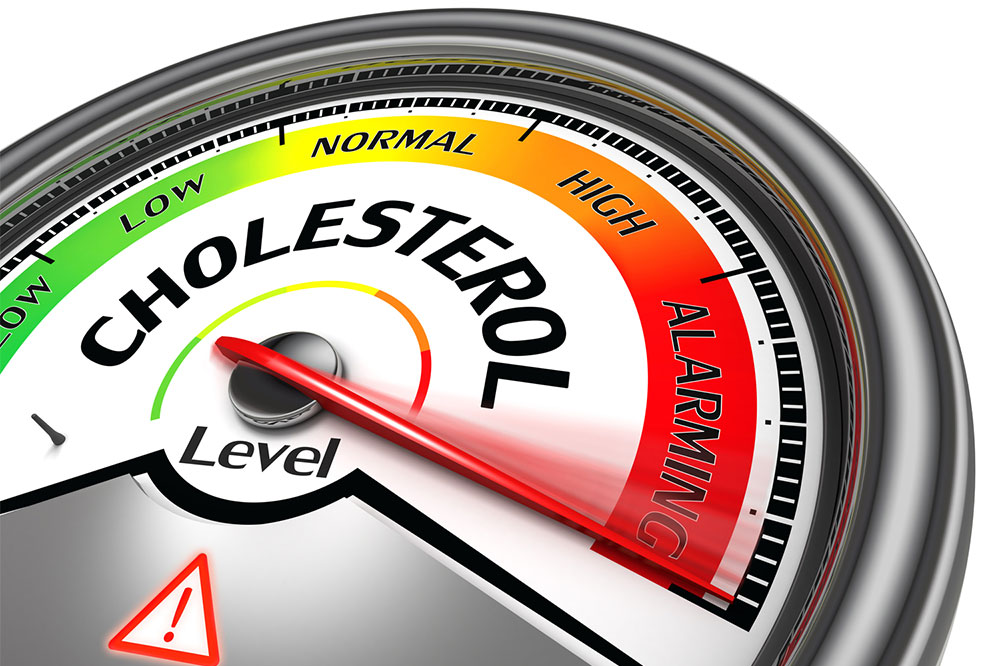Comprehensive Guide to Elevated Triglyceride Levels: Causes, Risks, and Management Strategies
Learn about elevated triglyceride levels, their causes, health risks, and effective management strategies. This comprehensive guide covers dietary tips, lifestyle changes, and medical options to help maintain healthy triglyceride levels, reducing the risk of cardiovascular disease and pancreatitis for a healthier life.

Comprehensive Guide to Elevated Triglyceride Levels: Causes, Risks, and Management Strategies
Understanding the significance of high triglyceride levels and their health impact
Triglycerides are a type of fat found in our bloodstream, serving as a crucial source of energy for various bodily functions. They are derived from the calories we consume, especially from carbohydrates and fats, and are stored in fat cells for later use. While triglycerides are essential for health—they help fuel muscles and other tissues—having excessive levels of triglycerides in the blood can have serious health consequences. Elevated triglyceride levels are increasingly common in modern societies due to dietary habits, sedentary lifestyles, and other health factors. Understanding how triglycerides function, what causes their elevation, and how to manage their levels is vital for maintaining long-term cardiovascular health and overall well-being.
What are triglyceride levels and why do they matter?
Triglyceride levels are measured through routine blood tests, which help assess the risk of cardiovascular diseases and other metabolic conditions. The American Heart Association considers a triglyceride level below 150 milligrams per deciliter (mg/dL) as normal. Levels between 150 mg/dL and 199 mg/dL are considered borderline high, while 200 mg/dL to 499 mg/dL are high, and 500 mg/dL or above are very high. Elevated triglycerides contribute to the buildup of fatty deposits in arteries, called atherosclerosis, which can restrict blood flow, increase the risk of strokes, heart attacks, and other cardiovascular complications. Furthermore, high triglyceride levels are associated with insulin resistance, metabolic syndrome, and fatty liver disease, making their control a cornerstone of preventive medicine.
Causes of high triglyceride levels
Multiple factors can lead to elevated triglyceride levels, often in combination. These include lifestyle choices, underlying health conditions, and genetic predispositions. Obesity is a significant contributor, as excess body fat, particularly around the abdomen, affects how triglycerides are processed in the body. Uncontrolled diabetes, especially when blood sugar levels are poorly managed, can cause triglycerides to rise. Kidney disease, hypothyroidism, and certain inherited lipid disorders also play roles. Dietary habits heavily influence triglyceride levels; a diet high in refined sugars, saturated fats, and trans fats can increase triglycerides, while high-calorie intake, particularly from sugary beverages and processed foods, exacerbates the problem. Alcohol consumption is another critical factor, as excessive drinking increases triglyceride synthesis in the liver. Additionally, some medications, like corticosteroids, beta-blockers, and diuretics, may elevate triglycerides. Genetic factors also contribute, with certain inherited conditions leading to naturally high triglyceride levels regardless of lifestyle.
Health risks associated with elevated triglyceride levels
High triglycerides are more than just a lipid abnormality; they pose direct threats to health. The primary concern is the increased risk of cardiovascular disease. Excess triglycerides contribute to the formation of atherosclerotic plaques, which can narrow and harden arteries. This process raises the likelihood of heart attacks and strokes. Additionally, very high triglyceride levels, particularly above 500 mg/dL, pose a risk for acute pancreatitis, a painful inflammation of the pancreas that can be life-threatening if not treated promptly. Elevated triglycerides are also linked to metabolic syndrome—a cluster of conditions including hypertension, high fasting glucose, excess abdominal fat, and abnormal cholesterol levels—that collectively increase the risk of cardiovascular disease, type 2 diabetes, and other health issues.
Strategies to lower triglyceride levels
Managing high triglycerides involves comprehensive lifestyle modifications complemented by medical treatment when necessary. First and foremost, weight loss is highly effective; shedding excess pounds can significantly reduce triglyceride levels. A balanced diet rich in fruits, vegetables, whole grains, lean proteins, and healthy fats helps improve lipid profiles. Limiting intake of sugary foods and beverages, saturated fats, and trans fats is crucial. Incorporating omega-3 fatty acids, primarily from fatty fish such as salmon, mackerel, and sardines, can drastically reduce triglyceride levels. Regular physical activity—at least 150 minutes of moderate aerobic exercise per week—helps burn triglycerides and improve overall metabolic health. Quitting smoking and reducing alcohol intake further aid in managing triglyceride levels. If lifestyle changes are insufficient, healthcare providers may prescribe medications such as fibrates, niacin, or omega-3 fatty acid supplements to help control high triglycerides. Monitoring lipid levels regularly allows for timely adjustments to treatment plans, ensuring optimal cardiovascular health.
Dietary recommendations for maintaining healthy triglyceride levels
Diet plays a pivotal role in managing triglycerides. Adopting a diet low in added sugars, refined grains, saturated fats, and trans fats is essential. Instead, focus on high-fiber foods like oats, legumes, and vegetables, which help reduce triglyceride levels. Consuming healthy fats—especially omega-3 fatty acids found in fatty fish, flaxseeds, and walnuts—can help lower triglycerides naturally. Incorporate lean protein sources such as poultry, fish, and plant-based options while limiting red meats and processed meats. Alcohol consumption should be minimized or avoided altogether because alcohol is a high-calorie substance that can increase triglyceride synthesis in the liver. It's also advisable to watch portion sizes and meal frequency, avoid skipping meals, and eat balanced snacks to prevent spikes in blood triglycerides. Hydration and moderation are vital, and consulting with a healthcare professional or dietitian can help personalize a dietary plan tailored to individual health needs.
Monitoring and maintaining triglyceride levels
Regular blood testing is fundamental to tracking triglyceride levels and assessing risk. Health professionals typically recommend checking lipid profiles once every 4-6 months for individuals with high triglyceride levels or risk factors. Maintaining a healthy weight, engaging in physical activity, and eating a heart-healthy diet are ongoing strategies to keep triglycerides in check. Additionally, managing underlying health conditions, such as diabetes and hypothyroidism, is crucial. If medications are prescribed, adherence to dosing schedules and routine follow-up appointments ensure optimal results. Lifestyle modifications not only help lower triglycerides but also improve overall cardiovascular health, reducing the risk of heart attack, stroke, and pancreatitis. Awareness and proactive management form the cornerstone of preventing complications associated with high triglyceride levels.
Conclusion: The importance of managing triglyceride levels for lifelong health
In summary, understanding and managing triglyceride levels is vital for preventing serious health complications. Elevated triglycerides are linked to atherosclerosis, heart disease, stroke, and pancreatitis. Adopting healthy lifestyle habits—such as a balanced diet, regular exercise, weight management, and avoiding harmful substances—can effectively lower triglycerides and improve overall health outcomes. Regular medical check-ups allow early detection and intervention, ensuring long-term cardiovascular health. Recognizing the importance of triglyceride control and making informed lifestyle choices can significantly reduce health risks, enabling a healthier, longer life. Staying vigilant about triglyceride levels and maintaining a heart-healthy lifestyle should be integral parts of your health journey. This proactive approach is vital for safeguarding your well-being now and into the future.





